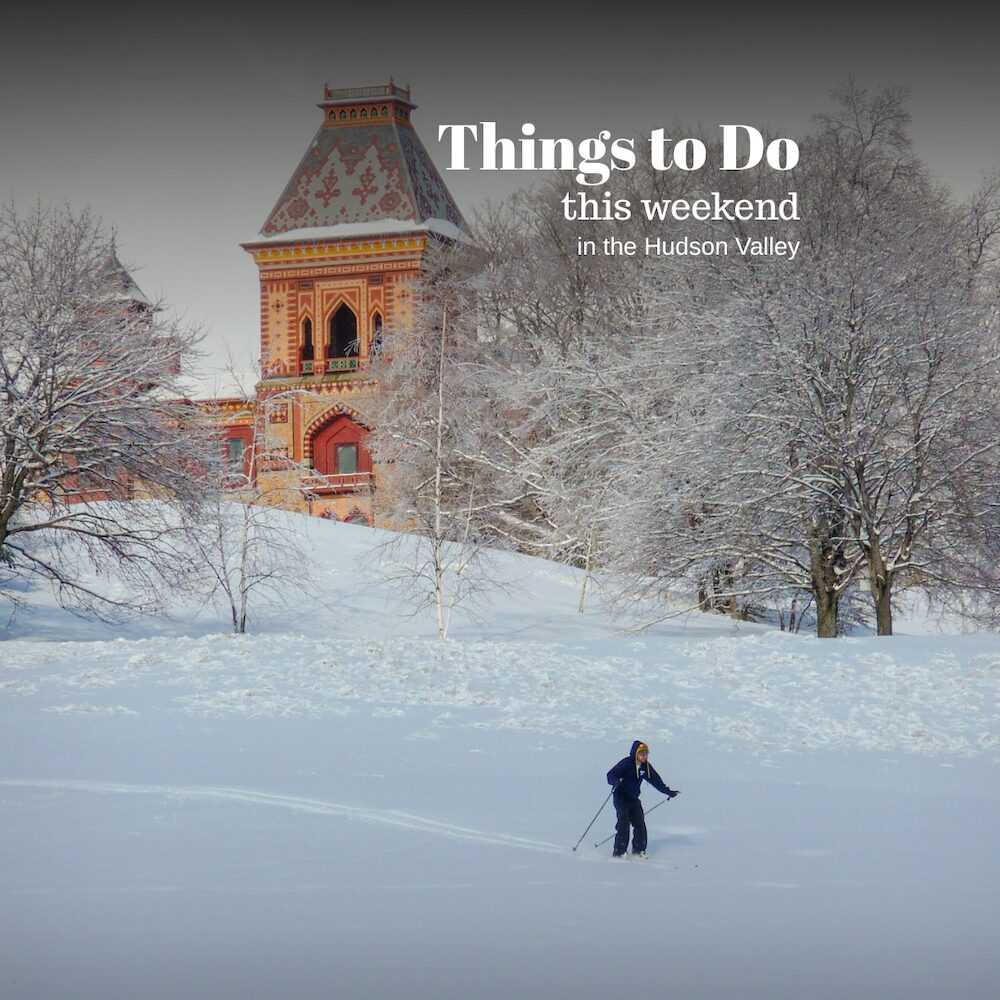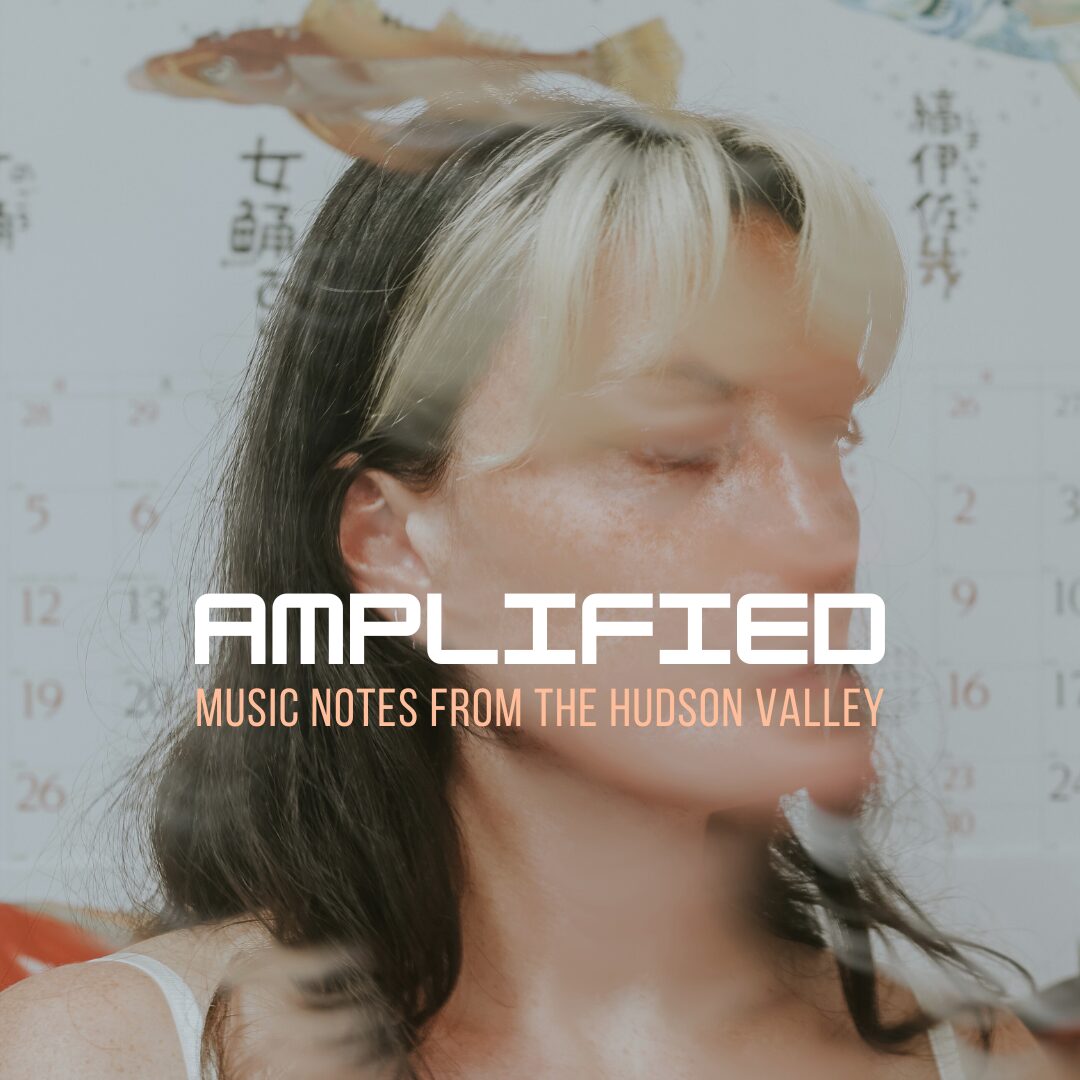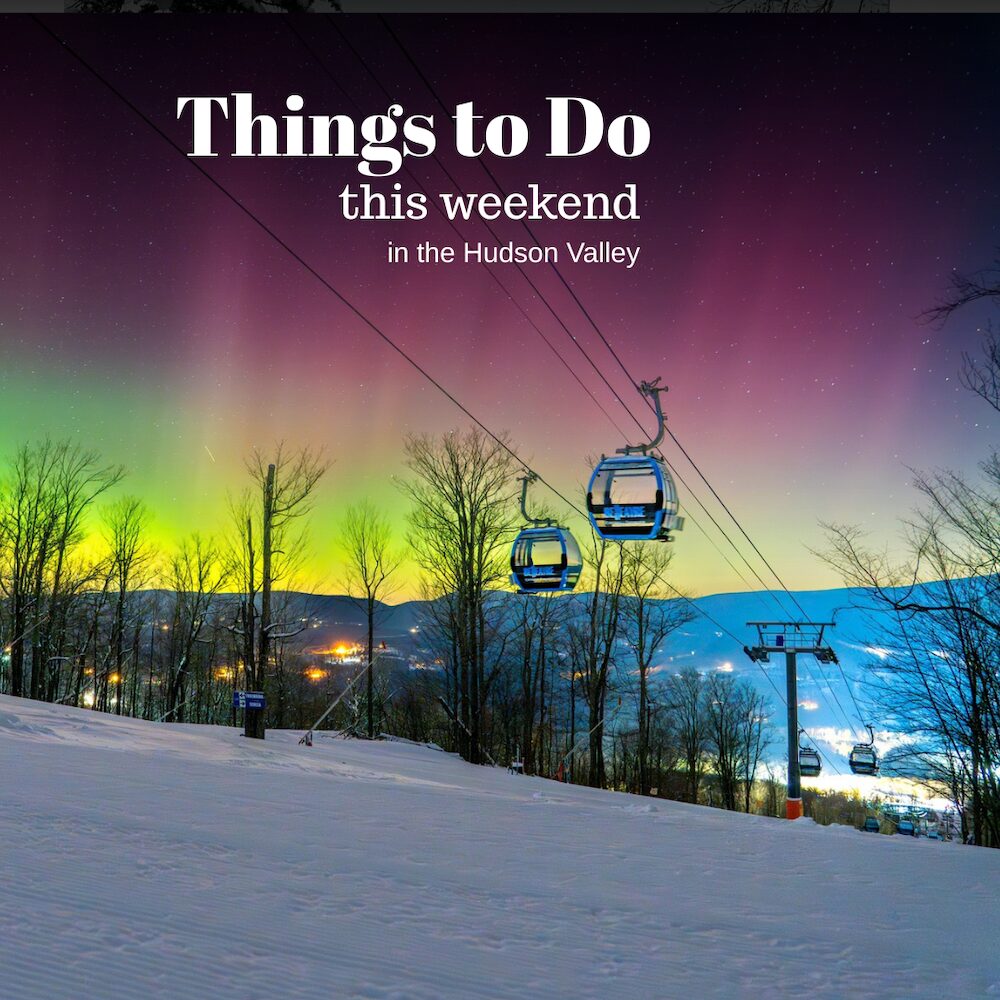
We Are Upstate NY With Hudson Valley Singer/Songwriter Brad Cole
We are Upstate NY with award winning singer-songwriter and band leader Brad Cole to talk about life in the Hudson Valley and his band Bossa Blue. Brad Cole has been a fixture of the music scene in Chicago, Nashville, and New York City for many years. We’re excited to spread the news that Bossa Blue is performing in the Hudson Valley with Cole (lead vocals, guitar), Mark Dann (bass, harmonies), Jerry Plotkin (keyboards, harmonies), and Bobby Sabella (drums, percussion).
“All of these guys have made their careers as accomplished sidemen and music producers,” says Cole. “I don’t think I’ve ever played with a group of more acute listeners in my life.”
In his native Chicago, Brad performed alongside legendary artists including Junior Wells, Otis Rush, Uncle Tupelo and the Smashing Pumpkins and with 15 years of touring, he has shared the stage with marquee performers including Chris Stapleton, Ingrid Michaelson, Hothouse Flowers, Shovels And Rope, The James Hunter Six and Dave Davies of the Kinks. In 2016, his life and music became the subject of a short film titled Cole Soul by award-winning film maker Steven Weiss and in 2021, Cole launched his Sci-Fi musical Songs From The Moon as a podcast series. Currently, Cole lives in New York’s Hudson Valley.
Brad Cole’s most recent project, Bossa Blue, has created quite a buzz with their multi-genre mash-ups of contemporary and classic rock tunes that run the gambit from Radiohead to The Beatles, from The Killers to Joni Mitchel, and now an entire set of James Taylor songs re-imagined and re-energized! Bossa Blue combines Latin rhythms, jazz, dub, rock and soulful blues, along with intriguing vocal interplay to create their unique and intoxicating grooves.
Let’s get to know Brad Cole…

INSIDE+OUT: Where are you originally from and how did you wind up in the Hudson Valley?
Brad Cole: Well, originally Chicago. Sometime after college, a couple of jobs and bands later, I made it down to Nashville to get closer to the music business. I ended up on the road 4-5 months a year and eventually migrated to Manhattan. Again, I was on the road a ton, and while I love the NY music scene, I was not really making a living there. At some point, my wife Erin and I visited some friends in Rhinebeck on a summer weekend, a lake house kinda thing and really liked the vibe. Everything felt easy….a few months later, this little house became available and it had a barn that was begging to have a studio in it. We couldn’t tell one town from the next, but we knew there was a vibrant scene, lots of players, great coffee, lakes and trees and such, so here we are.
Tell us about your background in music. How did you get your start as a musician?
I had not really picked up a guitar or sung until I got to college, but growing up where and when I did, music was all that mattered. My dad’s jazz collection, my older siblings bringing home now classic (and some not-so-classical) albums from college in the late ’60s, became a big part of my music sensibility. So I listened, played pots and pans and tennis racquet guitars. In 1980, after college, I moved back to Chicago, where punk and reggae were all the rage and we were total club kids. Friends and I somehow found instruments and began making noise. None of us were trained, but this kind of raw 2-3 chord music proved to be a low barrier to entry, and somehow, the first club gig was in 1982. We were so green, noisy, messy vocals, but folks danced, and we just kept doing it. That band was Treatment. Lots of clubs, lots of drugs, lots of fun and it became a big part of the Chicago music scene. Time rolled on. In 1992, I lost my older brother, and for 5-6 years, I basically shut down all art and music in my life.

Your music style is a diverse mix of bossa nova and jazz. What drew you to this music?
My dad’s record collection had a big influence on me. Oscar Peterson, Bill Evans, Sinatra, big band stuff, and Girl From Ipanema were everywhere when I was a kid. How about the theme song to “I Dream of Jeannie?” After I started playing in the 80s, I was eager to revisit this stuff, but I was playing other things. Back then, album liner notes were a big thing. For example, I loved Santana: Coke Escovedo played on a Santana record, and Deodato played on the Escovedo record. Al DiMeola played on the Deodato record, which led me to Return To Forever, and then Chick did standards with a Latin vibe. Trust me, I love Zeppelin, The Beatles and Clapton, but Jazz was just more intriguing to me. Sometime in the 90s, I was in London in a club and “Agua De Beber” (Astrud Gilberto) was playing in the background. I’m not sure what drew me in, but I figured I had better learn something about music other than cowboy chords.
When did you start writing songs? What is your process for writing?
I started writing in my early 20s, and my process has somewhat morphed over time. Back then, I was journaling, falling in love every five minutes and moving to the city (Chicago), which was a cultural explosion for me. I collected stories, observations, heady song titles, and cheap rhymes. Much of what developed musically came from the band just fucking around: a bass line, a couple of chords, and we would all start jamming. Somehow, I’d match an idea to a sound and then develop it for the band, and we would jam it down till we had something that sounded like a pop tune. Back then, songs were mostly about getting laid, getting fucked up and living in a fucked up world…most of this developed into dance music with kind of a Police/Ska punk bent.
Fast forward, I mentioned losing my brother. He was murdered, and all things pretty much shut down for a significant spell. When I came back to life, it was the late 90s. I was listening to female singers/songwriters like Amiee Mann, Kim Ritchie, Lucinda Williams, and Shawn Colvin, but when I heard Patty Griffin’s Living with Ghosts, the light came on for me. They were articulating concepts and feelings through metaphor and story, painting fearless pictures, and using the occasional 3-dollar word (I remember Aimee Mann using a balustrade on a rhyme). Oddly enough, this led me back to give the icons like Dylan and Joni a deeper listen. I joined a singer/songwriter collective at the Old Town School of Folk Music in Chicago, where we would swap new song ideas.
I quickly learned that this is a listening game. Critical listening of myself and others: not to criticize, but more about listening for structure, intent, and a cinematic view of the story or the feeling. So my approach really changed, and I took writing more seriously and began to do shows with an acoustic guitar, unhidden by a band. I seemed to be leaning into concepts/emotions that were hard for me to vocalize in conversation. I am not a great debater, but composing ideas, melodies, and emotions on my own ended up being a great palette for me, so the early 2000s were a very prolific time for me as a songwriter and acoustic performer. Actually, finishing songs was and still is very important. Now, the writing process is pretty much the same, but the musical feel is different. I’ve grown musically more complicated chords, my chops grew on guitar and as a vocalist, allowing me to lean a bit more into a jazz edge…and I guess over the last ten years, I have found playing in an ensemble with great players brings me into something more complex musically that lets me bring in my jazz roots.

You spent a lot of time in Nashville as a musician. Tell us about that and how that compares to being in the Hudson Valley.
The first observation is that both places have deep and accessible talent pools. It was great for a guy like me looking to execute as an ensemble. In Nashville, if you are a sideman or into writing for others, the music business shows up for you if you are tremendous and disciplined. That was not really my bag, as I am more of a creator and performer. That being said, if you compare 100 miles around Nashville versus 100 miles around Woodstock, I’d say the HV is hands down richer in venues and musical diversity. I’ve been able to make a living playing regionally. Living in Chicago and Nashville, I was touring nationally and on the road for months at a time. There are good people everywhere, but I feel like the Hudson Valley is like a musical paradise: fans, players and great intimate venues. I am truly loving it here.
Where do you record? Do you work with local studios or record on your own?
Here in the Hudson Valley, my friend and multi-instrumentalist, Mark Dann, has a recording studio in his Woodstock home. He’s been engineering and producing for decades. Bossa Blue recorded our first record live in his studio earlier in 2023. During COVID, I worked on a one-man show called Songs From The Moon. I recorded this in my home studio on my laptop, and I’d send the track to Mark, and we would edit and mix it together remotely. It was like I was at the mixing board with him, and it worked really well.
Tell us about your upcoming shows and where you’re playing locally.
The biggest thing for me is Bossa Blue’s ‘Tribute To The James Taylor Songbook’ series that we kicked off in December at The Colony. Early in the Spring, we take the show to The Towne Crier and have other wonderful surprises. I had a brilliant Spring, Summer and Fall with tons of shows, but now I am 100% focused on making this amazing. The band has so much dexterity, and the guys are so great. We are interpreting these James Taylor songs, so the challenge is delivering something familiar while still blowing people’s minds. After this, I may take a couple of months off from performing to work on new material and, of course, book shows for Spring/Summer ’24.

What is your dream gig?
Ha! I think it’s really being “in the moment” with the band and the audience. The more intimate, the better. If I have a sound person I trust and a room that allows for chilling AND dancing. That’s my idea of a dream gig.
What is one question you’re constantly asked or the biggest misconception about your work?
Gosh…some folks ask why I did not stay in Nashville, as if I would have been more successful or something like that. I don’t know. Nashville was great, but I wasn’t a side man and wasn’t looking for a publishing deal.I wanted to develop as a performer and be in a bigger world. I don’t know how the cards would have played out had I stayed in Tennessee. What I know is my way is to roll on: that there is hope on the road ahead instead of just stirring the pot. In 2015, I packed up the truck and headed north. Soon enough, I was singing in jazz clubs in NYC and now living here in the woods with my little family. I am grateful to be where I am and overall proud of my journey. Another misconception: my songs tend to go way dark. Delivering a lot of darkness to people does not feel good to me. I strive to connect through positivity and promote harmony, so even though I consider myself a folk singer, much of what I perform now is upbeat, incorporating many African and Latin rhythms. Playing out gets me out of my darkness.
From a business point of view, what are your thoughts on being a musician in today’s world?
Very few people make real money doing what they want to do musically. For me and others, making a living in this space–it’s a lot of hard work, constantly looking for inspiration and opportunities and, of course, looking to inspire people around you. Gotta do the social media thing and stay connected. That being said, it’s hard for one person, for an artist, to do everything well to make it. Fundamentally, opportunities come and go in this world, so you must love music to persist in this space and find happiness.
How do you feel about AI entering this creative space?
The same way I feel about electric guitars, drum machines, sampling and loopers: just another tool for an artist to be creative with. Bring it on.
What advice would you give to aspiring musicians for breaking through?
Love your practice. To me, studio time for playing and practicing is golden. Getting out is equally important: meeting people, fans, and other players and seeing live music. No matter how good you are, you have to make the effort to get out and connect to people and or a vibe.
How do you want people to feel when they leave one of your shows?
Funny, I saw The Mammals this weekend and left the venue energized, singing, being silly and inspired…. I told some friends about the show. I had never heard of The Mammals and did not know what to expect, and I felt thoroughly entertained. That experience is a great feeling to deliver and share.
What is it about the Hudson Valley that makes it unique to live + work + make music here?
Easy drives to many cool little towns, each with its own character and special things to do. And, of course, year-round outside recreation opportunities are endless. Also, I guess this has to do with living through COVID in the HV: people want music. Folks always say we need more music, and I can see people, towns and businesses hustling for more festivals and venues popping up. It’s great to see.
What are some of your favorite places to perform in the Hudson Valley?
Great sounding intimate rooms: Colony in Woodstock, The Falcon in Marlboro, Towne Crier Cafe in Beacon. Levon’s Barn in Woodstock is basically a house concert on steroids. The Stissing Center in Pine Plains is a gorgeous performing arts space. The Barn in Egremont, but that might be more Berkshires. For outside, Slow Fox Farm in Clinton, Hudson House Distillery on their deck overlooking the Hudson, and The Station Bar & Curio in Woodstock are super funky and fun. Of course, the Colony Beer Garden is amazing!
What local businesses do you rely on to be successful?
I try to support clubs, more like listening rooms and festival organizers. It’s a two-way street: we need each other to bring music and art to our towns.
What is missing in the area that you wish we had?
Well, I live in Rhinebeck, and there are no good listening rooms or even chill cocktail lounges on this side (east) of the Hudson. I guess the Towne Crier in Beacon. But, and I am being selfish, really nothing within 30 minutes of Rhinebeck.
Tell us something about yourself that people might be surprised to know.
I am always going on about unity and harmony. Still, deep down, I am scared shitless of where our planet and our civility are headed. I consume tons of Sci-Fi, looking for clues on how we might survive.
What is your current state of mind?
Oh gosh. I’m thinking of Style Council’s “Ever Changing Mood.” I’m back and forth between survival and gratitude. I tell myself I’ve given up on perfection, but I don’t know if I own that. I’m not sleeping well, and I am absolutely torn up by all the world’s divisions. I often remind myself that while I cannot control things, I am free to make choices. At the same time, I love and cherish my family and friends, my home and any chance I get to make music. Above all, I realize I am a hope junkie.
Follow Brad Cole’s music and shows via Website | Facebook | Instagram | Spotify | YouTube
+ + +
Click HERE to see all of our exclusive interviews with the amazing folks who proudly call the Hudson Valley home.
Write a Comment
You must be logged in to post a comment.







